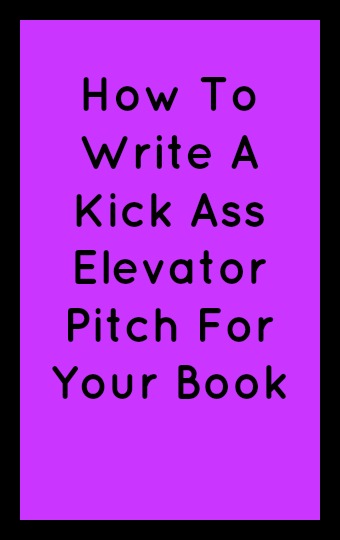You might remember in Thursday’s post, which was all about getting a literary agent to actually read your manuscript, I mentioned using your book’s elevator pitch.
Today’s post will talk you through generating a killer elevator pitch for your book.
What Is An Elevator Pitch And Why Do You Need One?
An elevator pitch is a short, usually a sentence or two, blurb that tells someone the base themes of your book. It’s  called an elevator pitch because it should be concise enough to tell someone if you were riding one floor of an elevator with them.
called an elevator pitch because it should be concise enough to tell someone if you were riding one floor of an elevator with them.
An agent wants to know roughly what your book is about without having to read the full synopsis. You need an elevator pitch to use in your query letter so you can convey the main things your book delivers in a quick fashion.
How To Write Your Elevator Pitch
You know your book better than anyone and it’s up to you to convey it’s message – don’t be vague, agents want to know what your story is about.
To write your elevator pitch, rather than thinking of the actual plot, start by thinking of the themes in the story. Once you have the main themes, you will start to see immediately what your elevator pitch needs to get across.
You should also include enough detail about your main character to make them sound interesting.
An Example of A Good Elevator Pitch Compared to A Bad One
Let’s use the Harry Potter series as an example because I’m sure everyone is familiar with it. On face value, it’s basically about a boy wizard who has to battle an evil wizard. But there’s so much more to it than that, which is where the themes come in.
For example, a bad elevator pitch would be something like:
A wizard has to recover magical objects to defeat the evil wizard and save the wizarding world.
This does roughly cover the story, but it is very vague and sounds like pretty much every fantasy book ever.
A good elevator pitch would be something like:
When a boy learns his true fate, his whole world changes. Thrown into a world of magic, he must learn to survive a great evil in this new world with the help of his friends. A story of love, loyalty and bravery which shows us that sometimes heroes come in the most unexpected forms.
Do you see the difference there? The first example talks more about the basic plot, while the second example nails the themes of the book while still letting someone know that there will be magic involved and a quest to defeat evil.
The second example tells us that the main character is going to be a boy who ends up in a whole new word and immediately faces danger and has to learn to over come it. It tells us that he’ll have help from some good friends.
It tells us the main themes of the series: coming of age, love, loyalty and bravery. And it gives enough of a hint to let us know that there’s going to be some surprise heroes.
I hope this helps anyone struggling with their book’s elevator pitch.
Do you have any tips to add? Let me know in the comments
You can find me here: Twitter Facebook Bloglovin Pinterest and Instagram Please do stop by and say hi!


Great information. Thank you for sharing.
Excellent example! Very informative although a relatively quick read… Kind of like an elevator pitch! Ha.
Haha, love this comment!